Posted on 12/19/2025
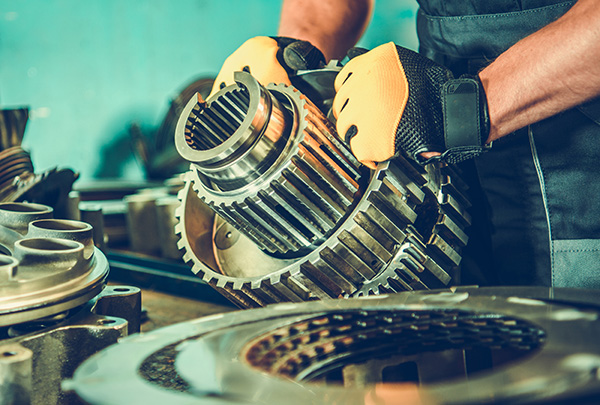
You feel that first hard shift or delay going into gear and your stomach drops. You know something is up with the transmission, but now you are staring at some big choices: fix what is there, rebuild it, or replace it entirely. That decision can change what you spend today and how long the repair lasts, so it is worth slowing down and looking at the details. What “Rebuilding” a Transmission Really Means A rebuild is more than just swapping a few parts. The transmission is removed from the vehicle, opened up on a bench, and inspected piece by piece. Worn clutches, seals, and soft parts are replaced, critical clearances are checked, and any hard parts that are damaged or out of spec get swapped out. When it is done right, you are basically getting your original transmission refreshed with new internals and updated components where possible. That can be a big advantage if the original unit fits the vehicle well and does not have any major design flaws ... read more
Posted on 11/28/2025
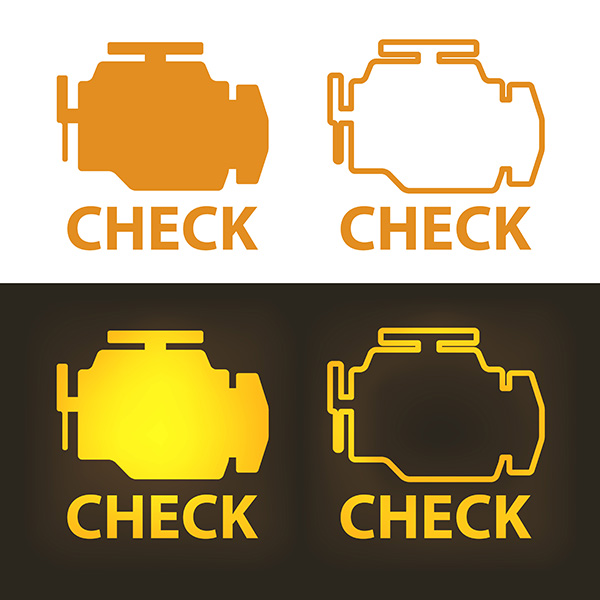
A check engine light during a drive can be unnerving. Sometimes it is safe to continue calmly to your destination. Other times you should pull over before minor trouble becomes expensive damage. Use this quick guide to make the right call in the moment and to protect your engine and catalytic converter. Step One: Decide What the Light Is Telling You There are two basic behaviors. A steady light usually means the computer has detected a fault that affects emissions, but the car may still drive normally. A flashing light warns of an active misfire that can overheat and melt the catalytic converter. Treat a flashing light as urgent, even if power feels normal. What To Do in the Next 60 Seconds Ease off the throttle and keep engine speed moderate. Turn off nonessential electrical loads like rear defogger and seat heaters. Watch the temperature gauge and oil pressure warning. Note any new symptoms: rough idle, hesitation, unusual smells, or smoke. C ... read more
Posted on 10/31/2025

Most drivers think of safety features like airbags, anti-lock brakes, or backup cameras. But some of the most important systems protecting you every day are the ones you probably never think about. These often-overlooked components don’t feel high-tech or dramatic, but they have a real impact on how safely your car operates. If these systems start to fail, your reaction time, visibility, or control can all suffer. Here’s what to keep an eye on. Visibility Starts With Your Wipers Wiper blades are easy to ignore until they fail you in a storm. If they’re streaking, chattering, or skipping across the windshield, they’re not clearing your view the way they should. Over time, rubber dries out, cracks, or gets brittle. That means less contact with the glass and more smearing instead of wiping. Washer nozzles and the fluid reservoir also matter. If your washer jets are clogged or the pump has failed, you won’t be able to clear away bugs, grim ... read more
Posted on 9/26/2025
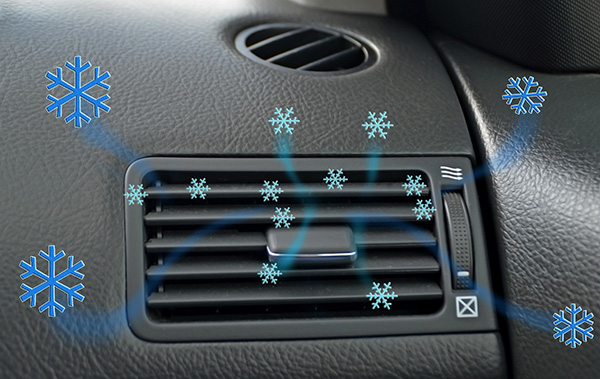
You start the car on a freezing morning, turn up the heater, and wait. Instead of warm air, cold air keeps blowing through the vents. Aside from being uncomfortable, this kind of issue points to a problem under the hood. If the heating system isn’t working when you need it most, there’s a good chance something in the engine’s cooling system isn’t doing its job. How the Heater Is Supposed to Work Your vehicle generates heat as a natural byproduct of engine operation. The heater core, a small radiator tucked behind the dashboard, uses hot coolant from the engine to warm the air that blows into the cabin. A fan pushes that warm air through the vents once the engine reaches a proper temperature. If the heater core doesn’t get enough hot coolant or if airflow is restricted, you’ll feel little or no heat at all. Low Coolant Can Disrupt Heat Flow One of the most common reasons for cold air from the heater is low coolan ... read more
Posted on 8/29/2025

A long-distance road trip brings excitement, adventure, and new experiences. But nothing derails that excitement faster than unexpected car trouble on the highway. Whether it’s a flat tire, overheated engine, or weak battery, many common breakdowns can be prevented with proper preparation. Taking the time to inspect and service your car ensures peace of mind and helps you focus on enjoying the journey instead of worrying about what might go wrong. Check Fluid Levels and Top Them Off One of the simplest yet most important steps is to check your car’s vital fluids. Engine oil, coolant, transmission fluid, brake fluid, and windshield washer fluid should all be inspected. Old or low-quality oil can cause engine damage, while low coolant levels increase the risk of overheating during extended periods of driving. Fresh transmission and brake fluids ensure ... read more
Posted on 7/29/2025

Hearing a clunking noise every time you drive over a bump can be irritating—and, more importantly, a warning that something in your vehicle's suspension system needs attention. While some noises may be harmless, persistent clunks often indicate worn or damaged parts that could affect how your car handles or absorbs road impacts. Understanding what causes suspension clunks, recognizing related symptoms, and the importance of timely repairs can help you maintain a smoother and safer driving experience. How the Suspension System Works Your vehicle’s suspension system is responsible for absorbing road impact, keeping the tires in contact with the ground, and supporting handling and ride comfort. It’s made up of several components including shocks, struts, springs, control arms, bushings, sway bars, and ball joints. These parts work together to cushion your ride and provide stability when driving over uneven surfaces. Over time, these components ca ... read more
Posted on 6/27/2025
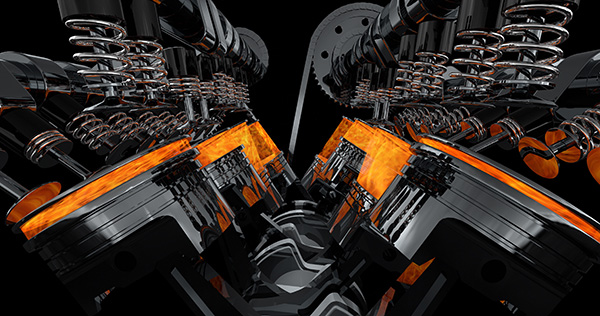
Every car makes a variety of sounds while running, from the hum of the engine to the whir of the fans. But if you hear a new, persistent knocking sound, it’s time to pay attention. Unfamiliar engine noises are often the first indicator that something is wrong. While some sounds may turn out to be harmless or minor, knocking is one that you should never ignore. This noise often sounds like a rhythmic tapping or thudding coming from the engine bay. It might appear only under certain conditions or persist throughout the entire drive. Either way, a knocking noise should prompt immediate inspection to avoid further damage. Common Causes of Engine Knocking One of the most frequent causes of engine knock is improper combustion. When fuel in the engine’s cylinders ignites unevenly or at the wrong time, it creates shockwaves that produce a distinctive knock. This can happen for a few different reasons, including low-octane fuel, timing issues, or a malfunctioning ... read more
Posted on 6/5/2025
Summer Driving in NJ Summer is here and so is the increased traffic. This is the most dangerous time of year for driving in NJ, so much so that it even has a nickname. The ‘101 Days of Summer’. The drastic increase in population means an increase in drivers. Our roads are busier than ever and that also means an increase in drivers that are intoxicated and distracted by cell phones. Teenagers are at a higher risk of being in an accident, so take the time to talk to them about road safety. Do not text and drive Always wear your seat belt Obey speed limits Check your car before driving. Oil, gas levels, coolant levels, mirrors etc To learn more about the 101 days of summer check out the official NJ webpage: https://www.nj.gov/oag/newsreleases19/pr20190521b.html
Posted on 5/30/2025
The Importance of Car Tire Pressure A Guide to Ensuring Safety, Efficiency, and Performance Introduction Maintaining the correct tire pressure in a vehicle is a fundamental aspect of car ownership. Proper tire pressure not only ensures the safety of the driver and passengers but also enhances the car's performance, fuel efficiency, and lifespan. Many drivers fail to check their tire pressure regularly, creating unnecessary risks and costs. This blog will explore why tire pressure matters, how to monitor it effectively, and the consequences of neglecting this vital maintenance task. Why Tire Pressure Matters Tire pressure plays a crucial role in how a vehicle performs on the road. It affects several key factors, including: Safety Underinflated or overinflated tires can lead to hazardous driving conditions. Tires with insufficient air pressure create excessive friction with the road, increasing the risk of blowouts, especially at high speeds. Conversely, overinflated tires red ... read more
Posted on 5/30/2025
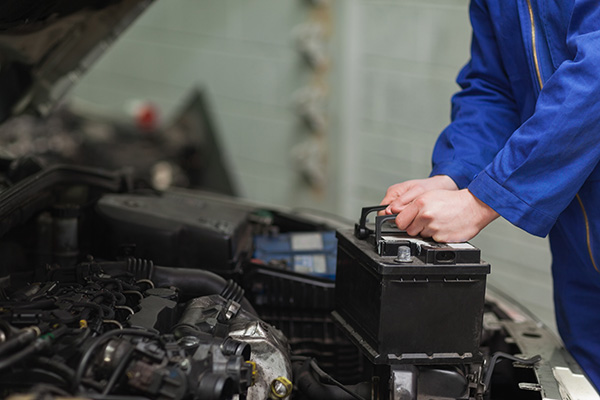
A dead car battery is one of the most common reasons vehicles won’t start, and it always seems to happen at the worst possible moment. The good news is that batteries often display clear warning signs before they fail completely. Recognizing those signs early can help you avoid unexpected breakdowns and keep your vehicle starting reliably in all conditions. If you’re wondering whether it’s time for a new battery, here’s what to look for and how to make sure your car is ready to go when you are. Slow or Struggling Starts If your engine cranks slowly or takes longer than usual to start, that’s one of the earliest and most obvious signs that the battery is getting weak. You might hear the starter struggling or notice the lights dim slightly as the engine turns over. These signs become more noticeable in cold weather when the battery has to work harder. A battery that’s struggling to start your car today may not start it at all tomor ... read more